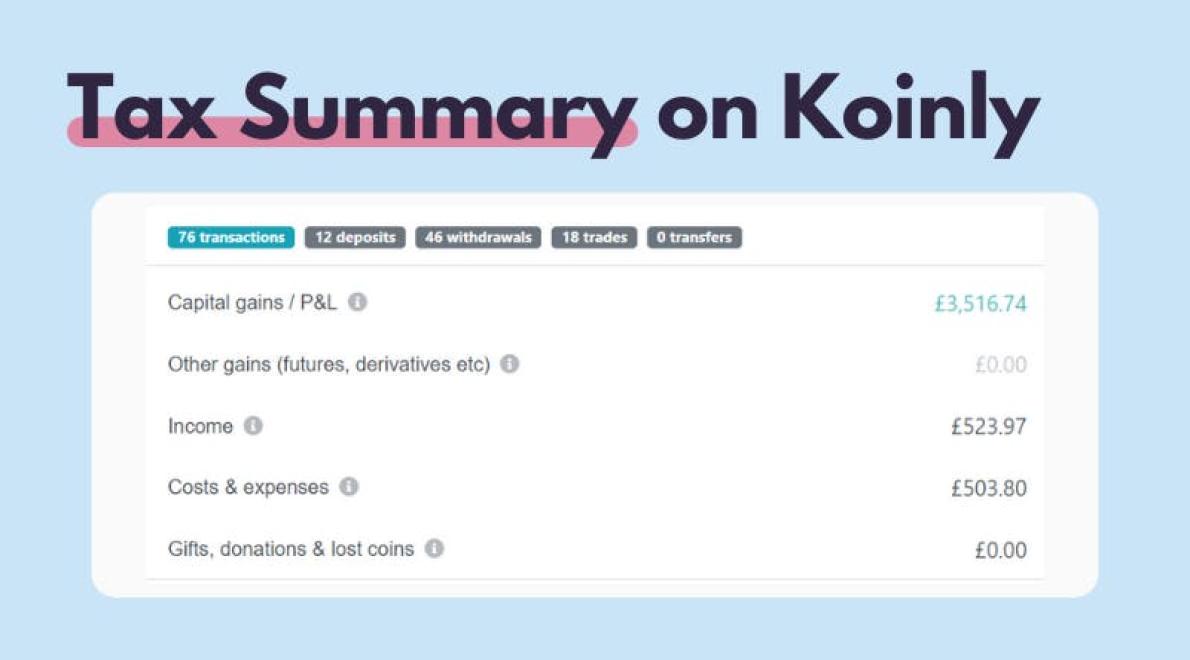The article discusses how the United Kingdom is taxing gains from cryptocurrency loans.

The US Internal Revenue Service (IRS) has reiterated that it will tax cryptocurrency gains and losses, according to a report.
The IRS said in a notice published on Wednesday that virtual currency is treated as property for tax purposes, meaning that investors will have to report any profits or losses they make from their holdings.
The notice follows a similar announcement in December that stated that individual cryptocurrency investors would have to pay taxes on any digital assets they earned or lost in 2017.
The news comes as some US crypto exchanges brace themselves for an increase in capital gains taxes as the US government looks to clamp down on high-value cryptocurrency transactions.
Bitfinex, one of the largest cryptocurrency exchanges, said earlier this month that it was expecting to pay US federal taxes of more than $1 million on its profits in 2018.
The UK government is set to announce new rules on crypto taxes later this year. This comes as part of a wider crackdown on tax avoidance by businesses and individuals.
Under the new rules, crypto trading will be subject to capital gains and income tax. This means that cryptocurrency investors will have to pay tax on any profits they make. The government is also set to introduce a new digital currency tax. This will apply to transactions worth more than £10,000 (€12,500).
The new rules are set to come into effect in April 2020.
Cryptocurrencies are not currently subject to taxation in the UK, but this could change in the near future. The government is currently considering how to tax digital assets, and it is possible that cryptocurrencies will be taxed in the same way as other forms of investment.
If you are earning cryptocurrency profits, you may need to report them on your tax return. You will need to account for any income and capital gains that you make from your crypto holdings.
If you are concerned about how your crypto gains will be taxed, you should speak to a tax adviser. They can help you to understand your specific situation and make sure that you are paying the correct amount of tax.
The UK's plans to tax crypto investors are unclear, but it is likely that they will be taxed as normal income earners. This means that crypto investors will have to pay taxes on their profits and losses, just like any other person or company.
The UK is one of the few countries in the world that does not currently have a specific tax rule for crypto traders or investors. This means that each country will have to create its own taxation rules, which could vary significantly.
In the short term, the UK may try to impose a value-added tax (VAT) on crypto investments, just like they do with traditional investments. However, this could be difficult to implement and could lead to a large number of tax evasion attempts.
In the long term, the UK may try to introduce a new form of taxation specifically designed for crypto investors. However, this is also uncertain, and it is possible that the UK will simply follow the example of other countries and tax crypto investments as normal income.

Crypto taxes in the UK can be complex, but there are a few key things to know.
First, Crypto taxes are based on how much of your cryptocurrency you own. If you only hold a small amount of cryptocurrency, you won’t have to pay tax on it. However, if you own a significant amount of cryptocurrency, you will likely have to pay tax on it.
Second, you will have to report your cryptocurrency holdings and income to the HMRC. You will need to provide information about your cryptocurrency holdings, income, and expenses.
Finally, you will need to pay tax on your cryptocurrency income using traditional methods such as payslips, self-assessment forms, or tax returns.
The UK government has unveiled plans to tax crypto gains, according to a report from The Independent. The proposed legislation would require individuals who make profits from cryptocurrencies to report their income and pay taxes on it.
The government is reportedly hoping to bring in £5 billion ($7.6 billion) in revenue from the tax bill. However, the proposal has met with criticism from some members of the cryptocurrency community, who argue that the taxes would unfairly penalize investors.
The UK is not the only country considering a tax on crypto profits. France, Sweden, and Denmark have all proposed similar measures in recent months.
Crypto investors in the UK will be taxed on any gains made from the sale of cryptocurrencies, according to a report from The Telegraph. The government has previously said that any capital gains made from the trading of cryptocurrencies will be taxable, and this policy is set to be extended to UK residents who invest in cryptocurrencies.
The tax policy is likely to cause some investors to move their money out of the UK, and could also lead to a decline in the value of cryptocurrencies in the UK. The government has said that it expects to bring in around £10 million in tax revenue from cryptocurrency transactions in 2018.

The UK's new crypto tax means that investors will now have to pay tax on any profits they make from trading or investing in cryptocurrencies. This is separate from any tax that may be payable on the value of the cryptocurrency itself.
The UK's new crypto tax will affect investors in a few ways. First, it will increase the price of cryptocurrencies, as this new tax will put a financial burden on investors. Second, it could make it more difficult for investors to invest in cryptocurrencies, as they may need to pay additional taxes on their profits. Finally, it could lead to a decline in the popularity of cryptocurrencies, as investors may choose to invest their money elsewhere.
The UK's new crypto tax is set to come into effect on January 1, 2020. The tax will apply to all digital assets, including cryptocurrencies, and will impose a 30% tax on profits made from trading and investing in cryptocurrencies. The UK government believes that this tax will help to discourage investment in cryptocurrencies and help to protect investors from potential financial losses.

The new crypto tax policy in the UK means that individuals and businesses who trade in cryptocurrencies will now be subject to tax. This means that individuals who make a profit from their trading will have to pay tax on that income, and businesses who receive payments in cryptocurrencies will also have to pay tax on that income. The new policy also means that cryptocurrencies will now be classed as property, meaning that they will be subject to inheritance tax and capital gains tax.